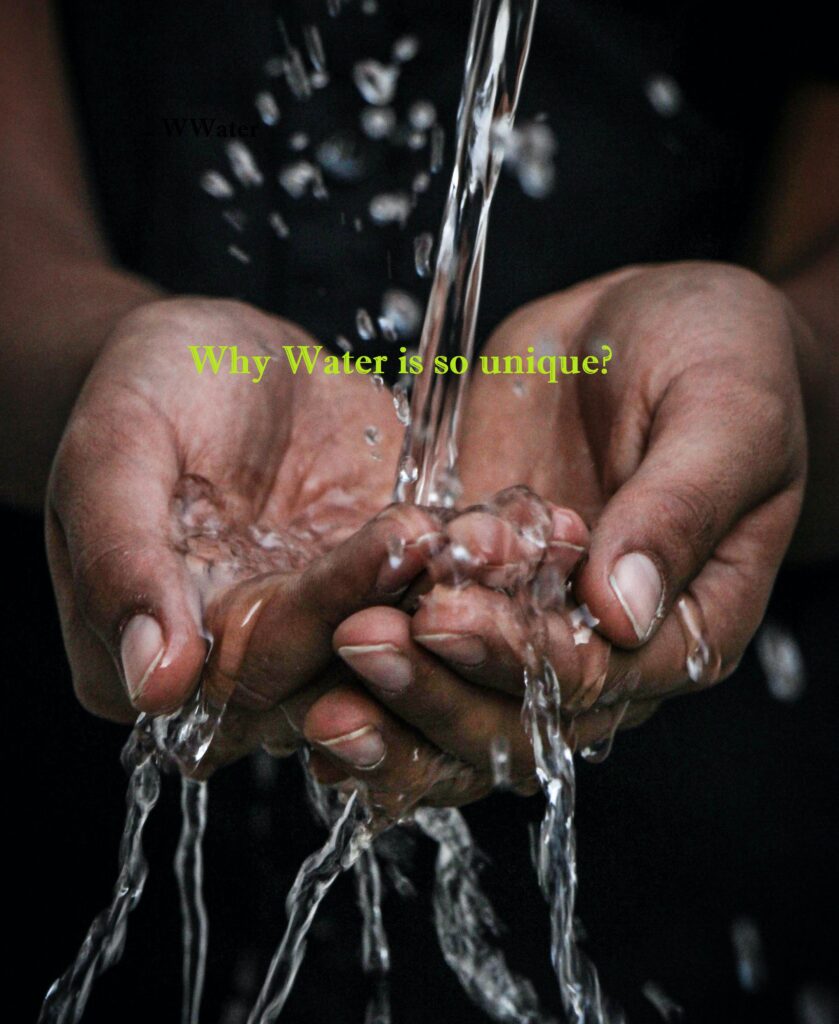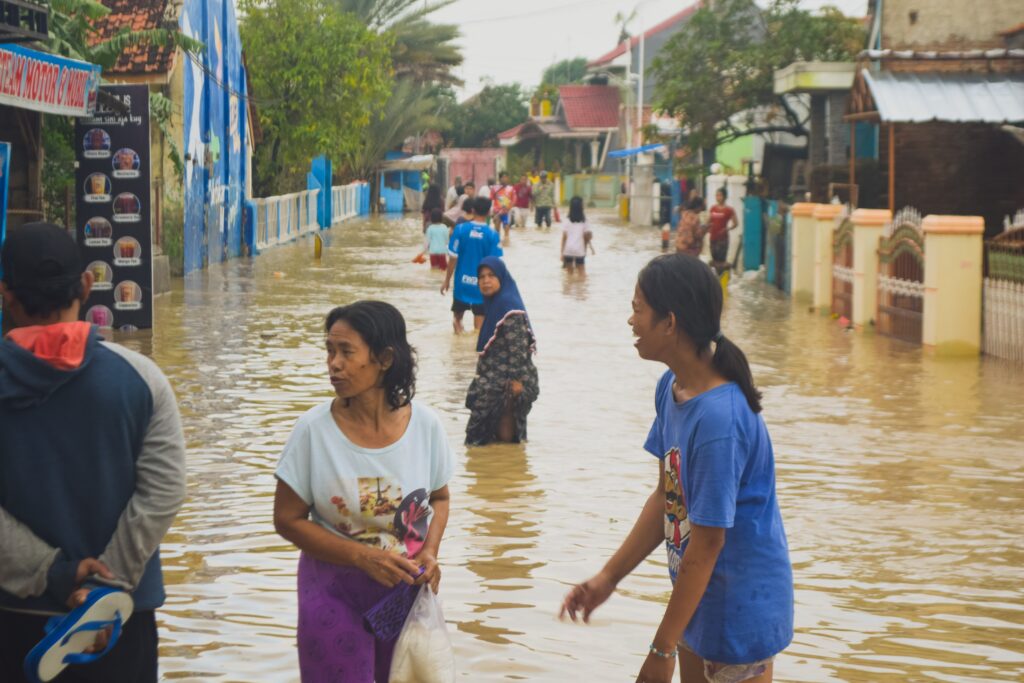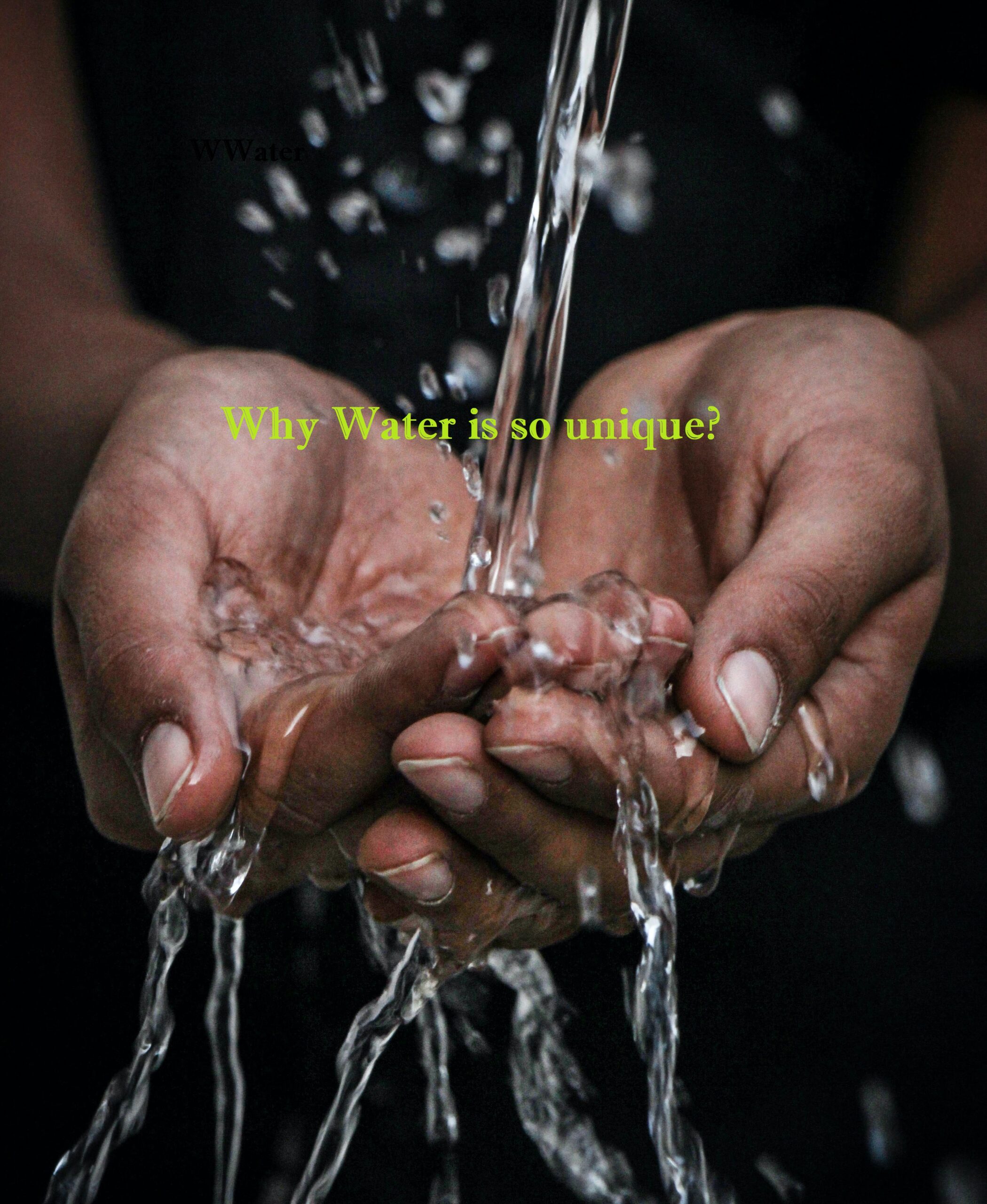
What is the definition of water! if you want to search the definition of water in Wikipedia it shows “Water (chemical formula H2O) is an inorganic, transparent, tasteless, odorless, and nearly colorless chemical substance, which is the main constituent of Earth’s hydrosphere and the fluids of all known living organisms. There are multiple definition of water but most simplest one is
Water is the driving force of all nature.
Leonardo da Vinci, philosopher
Estimating when water appeared on Earth is still debatable in the field of science. But we have known from our scientific scholars that the first living organism was developed in water. Which was a one-cell organism. That means we can say that water is the source of life. From ancient books to religious and historical scriptures we can see the presence of water and the value of water in ancient customs. we have got geological evidence that helps constrain the time frame for liquid water existing on Earth. A sample of pillow basalt was recovered from the Greenstone Belt, Quebec, Canada, and provides evidence that water existed on Earth 4.28 billion years ago.
Most of the ancient civilizations in the world were constructed on the bank of rivers. because rivers are the natural source of freshwater. The famous Mesoamerican civilization Mayan was developed on the bank of the Motagua River which is an important river for now Guatemala. Egyptian civilization was established on the bank of the Nile river(The longest river in the world). Roman civilization was established in 753 BC as a small community near the commercial passage of the Tiber River. Ancient Mesopotamia grew up along the banks of two great rivers, the Euphrates and the Tigris. In the Indian subcontinent, Mhenjodaro and Harappa civilizations were established on the bank of the Indus River.
But why water is so unique?
Water does not have any taste or color. Without water, our meal Water does not have any taste or color. Without water, our meal can’t complete. 60% of the Human body is made up of water. More than 71 % of the world’s surface is covered by water. But unfortunately less than 2.7% are freshwater which is used for different purposes. like for industry, cultivation, food processing, cleaning, construction, medical purposes, and many more.

And one interesting thing is that Excess Water cause flood and scarcity of water make drought. Each year we lost a lot of life in coastal USA, China, India, and Tanzania to floods. On 16 June 2013 North Indian state of Uttarakhand heavy rain caused devastating floods and landslides, becoming the country’s worst natural disaster. Because of the prominent Hindu Pilgrim site, a lot of pilgrims were there. The destruction of bridges and roads left about 300,000 pilgrims and tourists trapped in the valleys because of hilly regions. The official death figure was 6,054. A lot of people are missing till now. Kedarnath Temple was affected heavily in this floods.
As well as a scarcity of water affected a lot of life in some states of India, South Africa, and Australia. The City of Cape Town experienced its worst drought in over a century. While dam water levels had been declining since 2015, the Cape Town water crisis peaked from mid-2017 to mid-2018, when water levels in south Africa hovered between 15 and 30 percent of total dam capacity. How Countries like the United States, Australia Are also affected by water scarcity. These are the countries affected by water scarcity.
- Qatar
- Afghanistan
- Israel
- Lebanon
- Iran
- Jordan
- Libya
- Kuwait
- Saudi Arabia
- Eritrea
- United Arab Emirates
- San Marino
- Bahrain
- India
- Pakistan
- Turkmenistan
- Oman
- Botswana
Scholars tells that this is the side of rapid urbanization.
Scholars tells that this is the side effect of rapid urbanization. And unfortunately, this is correct. High-speed urbanization and deforestation have damaged the water ecosystem heavily. The timing and quantity of rain have changed from place to place. To fulfill the power demand we are regulating the water we are building dams for hydropower.
How we can save water?
- Educate the public– In almost all countries, the citizens are unaware of the freshwater deposits. That is how much water is present in their countries. Australia has started displaying the water level on electronic boards on roadsides.
- Making reservoirs for rainwater-We should build a pond and reservoir without affecting the flows of rivers. Because dams on the rivers create water discrimination. The upside of the dams may get surplus water and the lower side of the dams may get less water.
Using water is a responsibility. If we do not use water with responsibility, the future generation will remember us as an irresponsible ancestors.
We may be ready for development but the water may not!


You are my aspiration, I possess few web logs and occasionally run out from to post .